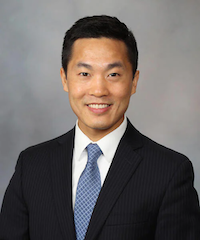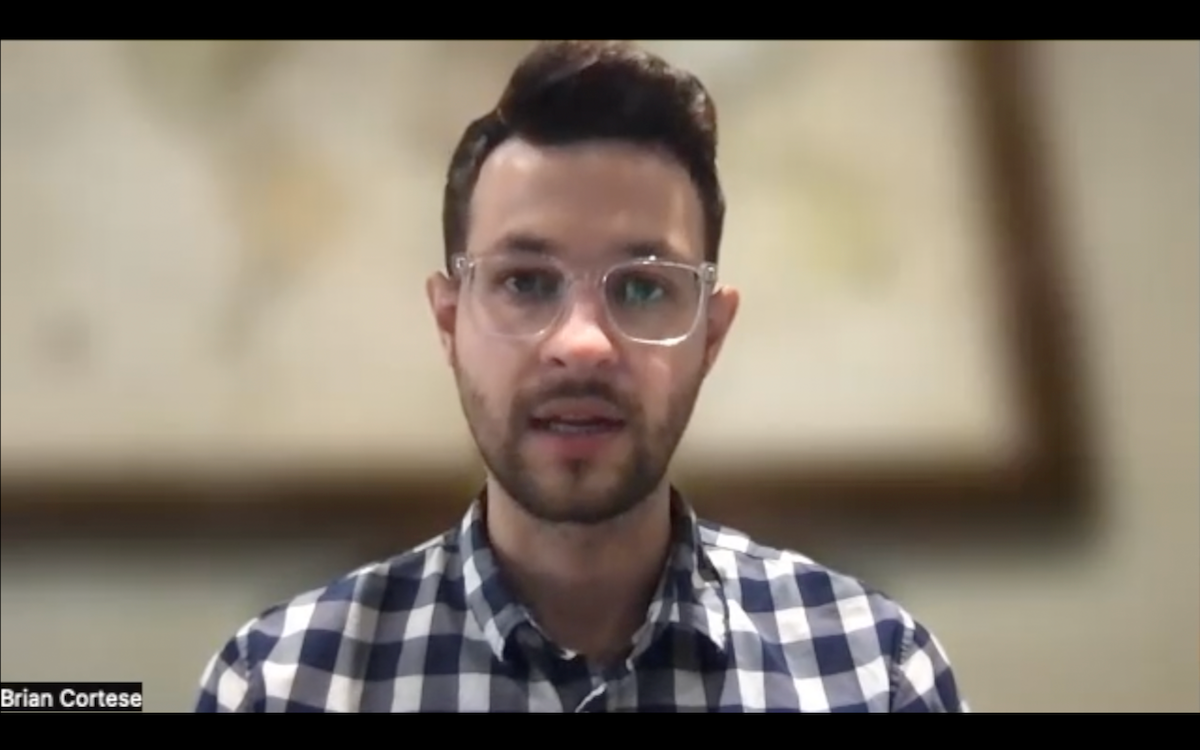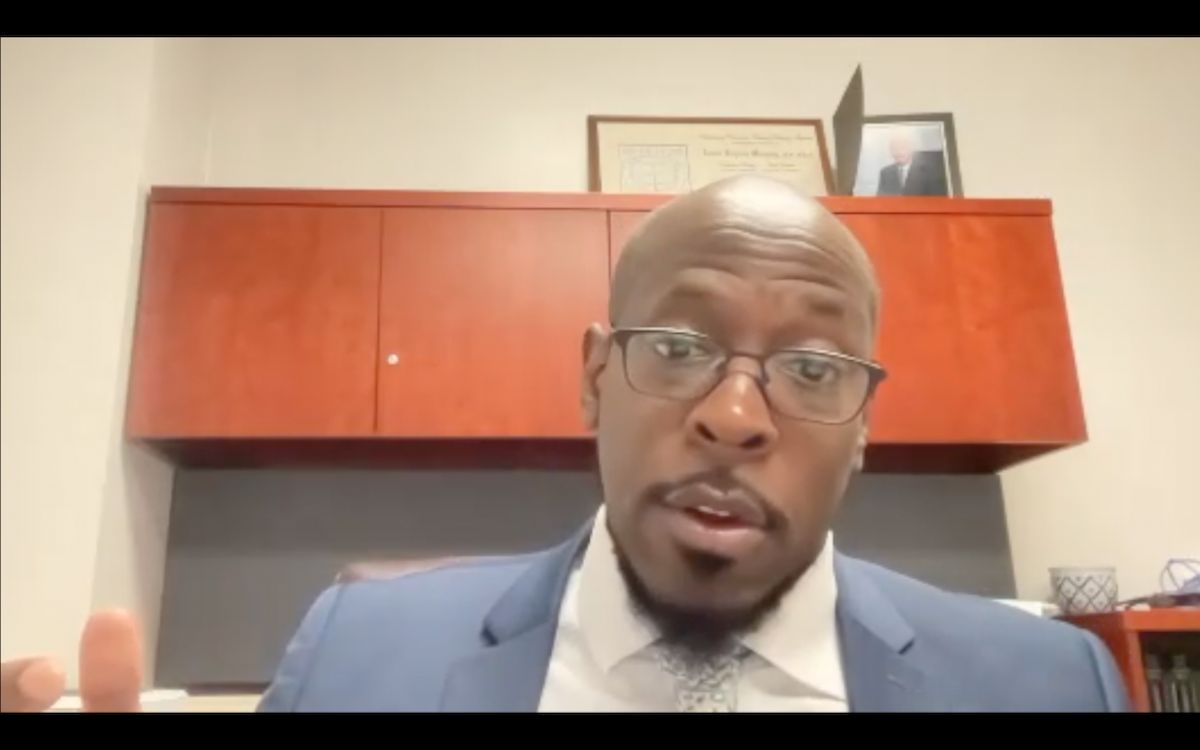Article
2023 AUA Summit focuses on 4 main legislative priorities
Author(s):
"This year's Summit was one of the biggest and most exciting so far," says Kevin Koo, MD, MPH.
In this interview, Kevin Koo, MD, MPH, discusses the 2023 American Urological Association (AUA) Summit, which took place from February 26-March 1, 2023 in Washington DC. Koo is a urologist at Mayo Clinic in Rochester, Minnesota and is on the Board of Directors for the AUA Political Action Committee (AUAPAC).
Kevin Koo, MD, MPH

Could you provide an overview of the AUA Summit this year?
The 2023 AUA Summit was the 6th annual event that we've held in Washington DC, and it's really the biggest urological advocacy event of the year. Hundreds of urologists and urology trainees, patients, patient advocates, and urology supporters, we all gather in Washington to talk about the most pressing issues for our patients, for our practices, and for the future of the profession. Then, we take those issues to our lawmakers and talk to them about what's going on in our communities and how legislators can help us advance urological care.
This year's Summit was one of the biggest and most exciting so far. We had a great attendance of over 250 people. It was a tremendous experience for everyone to really be on the ground, in the Capitol, and talking to the people who can change policies and help us ensure that urology remains at its best.
Could you touch on some of the advocacy priorities that were highlighted during the meeting?
During the AUA Summit, we discussed a whole range of issues related to urological training, the work force, issues that are concerning our practices, reimbursement, issues that matter at the state and local level, federal issues. Among those, we focus on a number of issues that are particularly active and relevant to our community.
This year at the 2023 AUA Summit, we focused on 4 primary legislative issues: the expansion of telehealth benefits to ensure that our patients can continue to connect with us wherever they are; Medicare Physician Fee Schedule reform to ensure that our practices are sustainable; the SPARC Act, which is the Specialty Physicians Advancing Rural Care Act that establishes a loan repayment program for urologists who practice in underserved areas; and finally, the PSA [prostate-specific antigen] screening for HIM act, which is a bill that ensures that men who speak to their physicians and want to undergo prostate cancer screening have access to the test without any burdensome cost-sharing requirements. Those are the 4 issues that we brought with us to Capitol Hill and spoke to our legislators about.
You mentioned a few topic areas, but could you specifically touch on the discussions and advocacy surrounding telehealth expansion?
Telehealth is an issue that all urologists and urology practices are now familiar with, and it's because the pandemic has really accelerated the adoption, implementation, and use of telehealth. We know this from the 2021 AUA census, which showed that the vast majority of urologists now have access to telehealth, have implemented telehealth in their practices, and that a majority believe that going forward, telehealth will remain at the same level or even increase in their practices.
This is an important issue. We certainly know that it's important for our patients, especially patients who may have difficulty getting to their urologist’s office. We often think about rural patients due to the distance and time it takes to get to the urologist, but we sometimes forget that it also applies to urban patients and perhaps patients who may not have the resources to be able to easily travel to their urologist's office, patients who may need to take multiple buses or take lots of time off from work where they can't afford to. Telehealth has helped urologists meet patients where they are, and that's so important for early diagnosis, for screening, for treatment adherence, and making sure that we're doing the best we can for our patients.
During the pandemic, because of the public health emergency, certain burdensome requirements that used to be in place that were limiting the easy use of telehealth were lifted and temporarily waived. That allowed the rapid expansion of telehealth in urology practices across the country. Now that telehealth is here and now that we know that it's an important option to have for many of our patients and that it works and has great patient satisfaction and clinical outcomes, [and] the public health emergency is soon ending, we have wanted to ensure that telehealth remains a viable option for our patients.
Due to some appropriations legislation at the end of 2022, we know that these benefits for telehealth will remain in place through the end of next year. Beyond that, the future of telehealth is in question. At the Summit, we spoke to our legislators and urged them to allow for the permanent expansion of telehealth benefits. What that means is a number of things. One, allowing there to be payment parity and reimbursement for telehealth visits and audio-only visits just as well as in-person visits. This is important because sometimes patients don't have the internet broadband access to do video. Sometimes we have to convert those visits to audio-only visits. It doesn't mean that the visit is any less quality or any less efficient. It does mean that we want to make sure that's an option that's available for patients.
We were also advocating for the elimination of burdensome originating site requirements. What that means is that previously, patients needed to go to specific sites like hospitals or designated clinics, and then jump on to telehealth from there and only then could telehealth be covered and considered a viable option. Well, we now know that the whole point of telehealth is to reach patients where they are, whether they're in their office, or whether they're at home, wherever they may be. I've had some patients where my patients live on farms, and they may be in the farmhouse connecting with me. But that's most convenient for them, and we're often able to have a very productive visit connecting with them there. Eliminating those originating site requirements is really important as well to ensure that our patients can connect with us and not have to go the extra step to another place to connect, which itself could be a burden for travel and time and cost.
Finally, we spoke to our legislators about interstate licensure. What we found is that as we have continued through telehealth, many of the licensing waivers that have been in place that have supported us being able to reach out to patients not only in our own states, but surrounding states and even across the country, some of those waivers will come to an end. It'll become very challenging for urologists in our practices to maintain the licenses needed to continue to see patients in our surrounding areas. Working on interstate licensing agreements and compacts is another long-term sustainable solution to ensure that telehealth remains robust and viable for both our patients and our practices.
You also talked about the loan forgiveness for rural areas, or the SPARC Act, which was another key priority at the meeting. Could you highlight the discussions and advocacy around that?
We know that our urology patients live in diverse geographic areas. Sometimes they're urban, sometimes they're suburban, and sometimes they're rural. Here at Mayo Clinic, our patients live across Minnesota and the surrounding states. Some of them are living in the cities and others are farming in some of our more rural areas. Regardless of where patients live, we want to be able to do the best we can for them as urologists and take care of their urological needs. But the urology work force is a bit maldistributed, which means that more urologists live in urban and suburban areas than rural areas and this creates some potential disparities in access to care, which is so important for us to address.
Telehealth is one option that can help us to bridge that divide, but we know that care is easiest for patients and most efficient and effective when that care is close to home. That's why helping urologists establish practices in rural areas and incentivizing those practices is so important. One of the pieces of legislation that has been supported by the AUA and by the urology community for many years, and it was first introduced in the last Congress, is the SPARC Act, which stands for the Specialty Physicians Advancing Rural Care Act. This is a bill that establishes a new loan forgiveness program for specialty physicians, including urologists who establish their practices in rural areas.
Specifically, it provides up to $250,000 of educational loan repayment for up to 6 years of service in those areas. Every year, about 1/6 of the total loan burden, up to $250,000, would be repaid for every year for up to 6 years of service. This is really important because we're not going to solve the rural access to care issue with a single piece of legislation or a single policy intervention. We know that we need to address this issue from a number of fronts, including work force, including telehealth, including making rural communities a safe and affordable place to practice.
What we do know from the AUA census is that urology trainees, residents, and fellows have reported that one of the most effective strategies to helping new graduates from urology training establish practice in those much needed underserved rural areas is to include some form of loan repayment. That helps our new urologists to set down roots, to start practicing in those communities, and to make it affordable to set up practices when it can often be financially infeasible to do so.
This type of loan repayment program already exists for many primary care specialties. We know that primary care is important, but specialty care, just like urology, is also important. The SPARC Act, which is soon going to be reintroduced in the current Congress is a really important piece of legislation that we can all get behind—urologists, specialty physicians, and medicine at large—to help address rural access to care issues to help our new graduates and urologists who want to practice in rural areas do so and to make sure that this is one among several different policy interventions we can use to help our rural patients get the urological care they need and deserve.
How can urologists and others continue to stay involved in these issues moving forward?
The 2023 AUA Summit is over, but advocacy isn't a day or a conference. Advocacy is a year-round effort that allows us as urologists and people who care about urology and our patients to champion those priorities and those policies that will serve our practices, our communities, and our patients in the long-term. There are several things that urologists can do to join together and join us in one voice to support these causes.
One thing is to stay engaged, to keep up with what's going on in the health policy space, and to keep track of those pieces of legislation that especially deserve our attention. For instance, the SPARC Act will soon be reintroduced in Congress, and when it does, it will be a great time to write to your members of Congress, your senators, and your representative to ask them to support this piece of legislation and why it's so important. We know that with advocacy, there's nothing that's more effective than urologists telling their stories; talking about how telehealth has made it possible for them to connect to patients that find it difficult to come to the practice; talking about how rural access to care is a real issue, and that we need to make sure that our workforce is where our patients are; talking about how establishing and sustaining a financially feasible practice really depends on have sustained, equitable reforms to the Medicare Physician Fee Schedule; and talking about how vital PSA screening access is and how we should keep the decision about PSA screening and early detection of prostate cancer between patients and physicians. Those stories go a long way, and our legislators need to hear from us. They need to hear what's going on in our practices in our communities.
Another way that we can all join together to support advocacy is to think about giving to causes that matter, and that can represent our voice. One of these ways is the AUA Political Action Committee, or AUAPAC. The AUAPAC is a political action committee that supports candidates and legislators who sponsor our issues, that understand the barriers that urologists and our patients face, and want to, through policy changes, help support what we do. Giving to the AUAPAC is something that US members of the AUA can do by going to myauapac.org. There, you can find information about what it is the PAC does [and] who we give to. It is a nonpartisan PAC, meaning we give to members of any political affiliation based on what their interests are and their support of our issues. That's another way that urologists can be part of this process.
Of course, [you can] come join us at [next year’s Summit] in February 2024. There's nothing like being there on the ground, at the conference, hearing about these issues, discussing them with policy experts, and of course, going to Capitol Hill and speaking to the people who have the most responsibility and authority to make these vital changes. We welcome and invite everyone to join us next year at the AUA Summit. Until then, please continue supporting the AUA.
These are the many ways that urologists can get involved in advocacy. The most important thing, if nothing else, is to stay informed and be engaged. These are issues that really affect practices across the country, they affect our patients and our patients' access to care. Whether it's by coming to the Summit next year, by considering giving to AUAPAC, or just by staying engaged and picking up the phone or writing an email to our legislators when those pieces of legislation are sitting in front of Congress, all of those are ways in which we urge our community to stay involved with advocacy and ensure that we can continue to advance urology and protect your urological patients and practices.
Newsletter
Stay current with the latest urology news and practice-changing insights — sign up now for the essential updates every urologist needs.
















